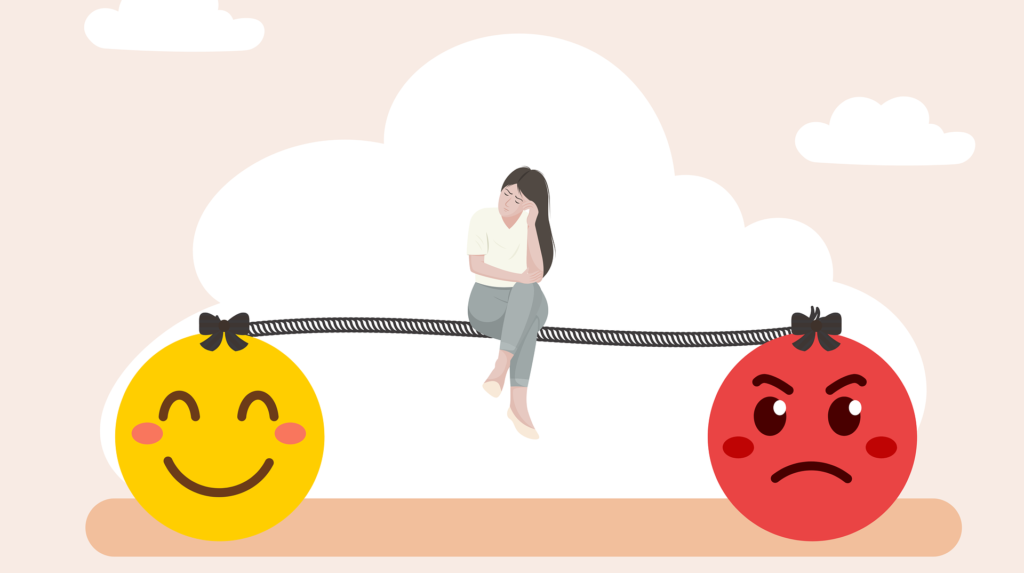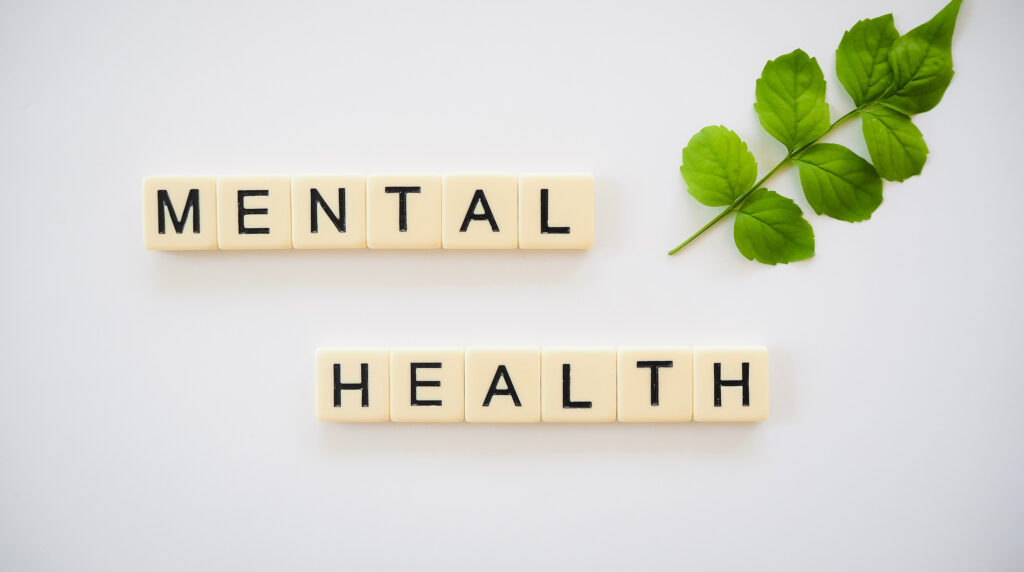Mental health has always been a highly stigmatized topic in our society, and yet today it ‘s impossible to talk openly about it for some people. However, why is it so difficult, if results reveal that 1 out of every 4 people will suffer some kind of mental disorder at some point?
To discuss it plainly in class is quite a powerful tool to help de-stigmatize mental health. Approaching mental health in class can be a key element for students to realize it’s common to experience a mental disorder and talk about it.
If you are not able to keep up with this topic and you can’t figure out how to talk about mental health with your students, we offer you a great guide to help you start such a necessary conversation. Let’s go!

Mental health: a pending matter in education?
If we assure you Spain is the European country with more children with mental health disorders, how would you react? This information, provided by “En Mi Mente” study by Unicef in 2021, is quite astonishing and draws on the importance to talk with students about mental health at a very young age. Many of these mental disorders arise before 14 years old.
Schools are a safe space where students spent most of their life, and this is an essential part to construct a safe space where they feel confident. If we can construct such a space, students will feel less vulnerable to talk about their feelings, and this can be a useful way to notice any possible mental disorders that can be treated subsequently by a professional.
Also, it’s vital that centers establish the basis and guidelines in order to approach mental health constantly in the different educational stages and not be forgotten easily with a mere single session about it. Therefore it is crucial that teachers receive appropriate training about the concerning issue.
Nevertheless, in this guide you’ll appreciate how to deal with mental health as a teacher, with the current limitations from centers.

Why should we talk about mental health in class?
There are plenty of reasons why you should discuss about mental health with your students in class, no matter the age. Here you have some:
- Talking about mental health in class can help to reduce discrimination, whether it’s in school or in society in general. 80% of the people suffering from a mental disorder have experienced discrimination and stigma. If you deal with these topics in the class to standardize mental health, this will contribute to decreasing bullying cases that stem from these stigmas. Thus, helping to construct a much more inclusive and tolerant society.
- 25% of the current population suffers or will suffer a case of mental disorder, in many occasions, this disorder may arise before 14 years old. Hence, it ‘s decisive to work for early detection and prevention of mental disorders in the schooling years. Also, Covid-19 pandemic increased the cases of mental disorders in children and youngsters up to 47% according to Spanish Association of Pediatrics results. Also suicidal attempts have increased, in fact, suicide is the second cause of death among young people from 15 to 29 years old.
- Discussing this topic in class can provide students with knowledge and tools that help them identify any possible mental disorder or build confidence to seek help from a professional. Nowadays, only 30% of young people look for this kind of professional help, so it ‘s imperative to work in class, at home, with society in order to raise this percentage. As teachers, we can help our students to develop more empathy, and also being more resilient with themselves.

6 advices to address mental health in class
Now that you know why it’s important to talk about mental health in class, we’ll offer you some advices on how to do it with respect and trying to create a trustworthy atmosphere:
1. Focus on how common mental disorders are, with data, but also with some examples of their role models who suffer from mental disorders.
Knowing someone famous experiences mental health problems and speaks out about it can help your students feel more confident to talk about mental health.
You can introduce them to some celebrities and explain the disorder they experience, or you can turn this into a class activity, so each of your students investigate about a person they idolize. This will boost their digital skills and know-how.
From Miki Nuñez to Simone Biles, also Paula Badosa or Anna Castillo, even Camila Cabello, among others. Many famous people speak openly about mental health experiences and can be a great self improvement example for your students.
2. Offer your students a true picture, you can invite a guest that can explain his or her life experience.
Show your students a real-life case of someone who experiences a mental disorder. This can help them to reduce stigma, be more empathic and get closer to real stories.
Besides, this will be a great opportunity to discuss with the target person, being able to get into deeper detail of what means to live with a mental disorder and how this is experienced in a society with such strong stigmas.

3. Encourage your students to share their own personal experiences.
A very important issue when talking about mental health in class is that your students feel safe enough to share their own personal experiences. This can be triggering, but sharing with the rest of the class can feel like we’re letting go of some prejudices about mental health.
You need to be thankful to your students for the bravery to share their experiences and also, realize that each one of them has their own rhythm. Some students may not be ready yet, so they need more time to feel confident.
4. When talking about mental health in class, do not use clichés, or vague references or even prejudices as this isn’t helpful at all.
Each person has its own story, so we can’t generalise, as this can feed stigma. Also, it’s important not to relate mental disorders with violence, as this tends to be one of the aspects that creates more stigma around mental health.
On the other hand, it ‘s vital they pay attention to discriminatory behaviors and stigmas. In class, they need to know how to detect such negative behaviors to eliminate stigma.

5. Discuss the topic deeply, highlight the different disorders, its symptoms, how this affects someone ‘s life…
To talk deeply about this topic can be awkward for some students, but this is what contributes to standardize mental health and to understand there are many different nuances and sides of the same coin.
If the school hasn’t offered a specific training about this, it’ll be crucial to do so with the support of a mental health professional. This can be either a child psychologist, a psychiatrist or even the school psychologist, if any.
6. Associate mental health topics with your subject.
Discussing on mental health in class doesn’t mean spending class hours only with this topic, you don’t have to forget about your subject. Hence, you can add mental health issues in your subject.
You can design some activities related with your subject, but where the leading part is for mental health. You can take advantage of the lesson planner to do so, this way you’ll be able to schedule the class, and also link resources and assign the related tasks.
For example, in English, your students can do some research about a role model and how this person has experienced the mental disorder. Or in Spanish, they can look up for a text of an author who works with mental health issues. From this starting point, students will have to analyse different aspects of the given text. Or, in Sports, some techniques can be explored as meditation and mindfulness, this may help students to be calm and relaxed.
There’s never a true answer, but you can let creativity flow and choose several activities that can help dealing with mental health in class, in relation to your subject.

What about you, are you talking about mental health in class?
We hope this guide has provided you with enough tools to start approaching mental health issues in class.
If you talk about this in class, we want to know your experience! Tell us how it was or ask us for more advice in our social media: Facebook, Twitter, Instagram y Youtube.
Meet us again in the next post! 🙂





